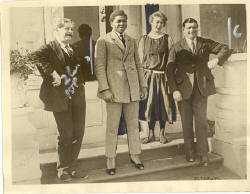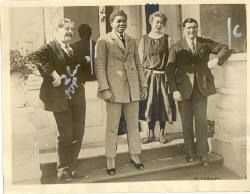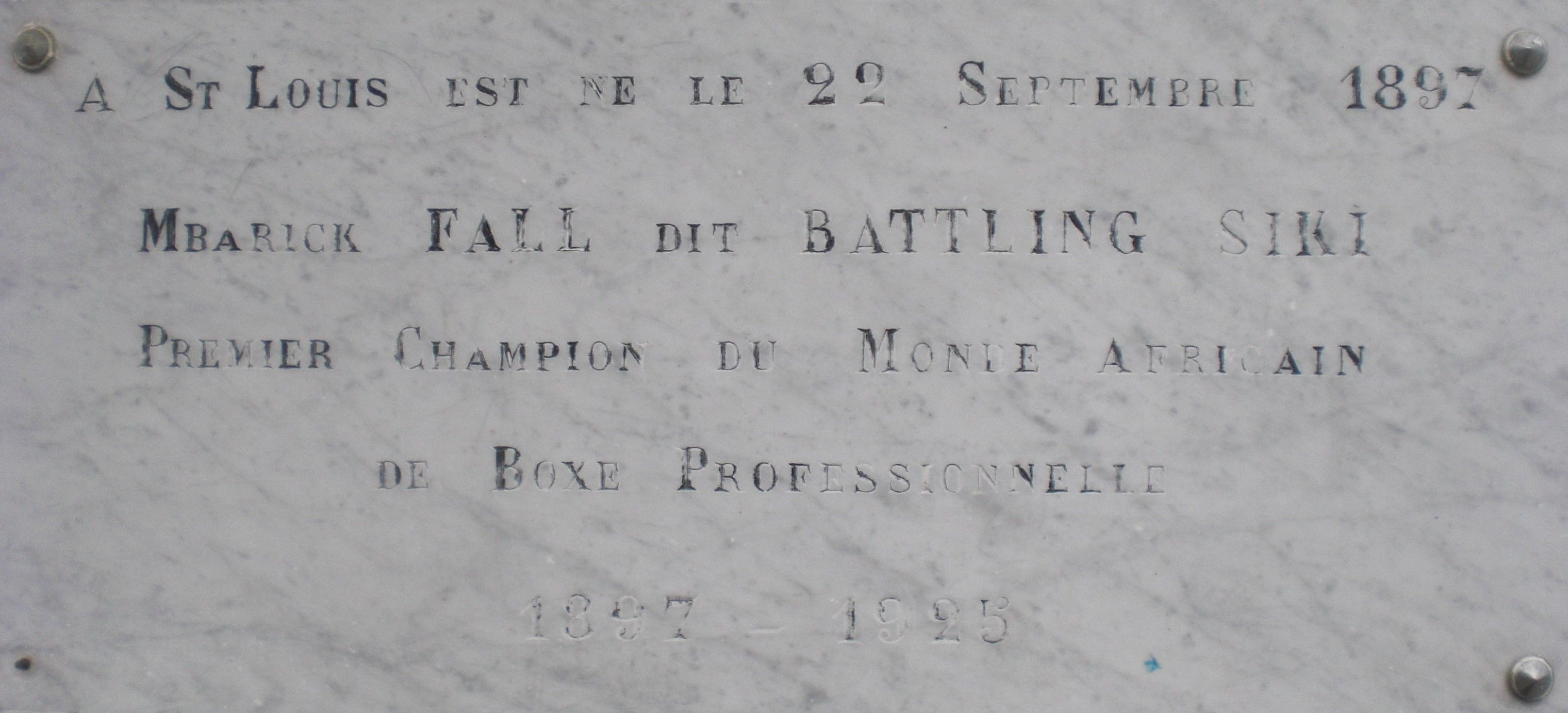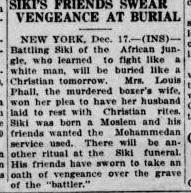From 1912 to 1914, fighting strictly in France, Battling Siki compiled an unimpressive record of 8-6-2. With the outbreak of WW I, Siki then enlisted in the French army, where his bravery in battle earned him both the Croix De Guerre and the Medaille Militaire.
Siki resumed his boxing career in 1919 after leaving the service. With new-found vigor, Siki won 43 of 46 fights in the ensuing four years, drawing twice, and losing only a 15 round decision to Tom Berry in Rotterdam. Light Heavy weight champion at that time was Georges Carpentier. Carpentier's manager, Francois "General" Deschamps, attended Siki's June 1922 win over Marcel Nilles and decided Siki was a "safe" opponent for his champion. When the bout was held on September 24, 1922 in Paris, France, Siki became the first black fighter in seven years to fight for a boxing championship.
Carpentier (173 1/2 pounds), fighting on French soil for the first time in three years, was a heavy favorite against Siki, and his popularity produced the first million franc gate in French boxing history. Forty thousand people packed the Buffalo Velodrome to see their idol in action, and Siki, an awkward slugger, seemed to be a perfect foil for Carpentier's homecoming.
Siki followed the script for the first three rounds, being dropped twice by the champion. Carpentier even told his manager and trainer after the first round "I'll get him whenever I want to." But Siki (174 lbs), using his trademark "windmill" style, sent Georges to the canvas late in the third, and from that point on, he controlled the contest.
Siki shook off the champion's blows, telling him "You don't hit very hard, Mr. Georges," and Carpentier took a thorough beating over the next two rounds. In the sixth, a right uppercut sent Carpentier down and out. But referee Arthur Bernstein claimed that the challenger had tripped the French hero, and he disqualified Siki at 1:10 of the sixth round. The French crowd roared its disapproval, and the three judges at ringside, fearing a riot, reversed the decision twenty minutes later, rightfully naming Battling Siki the new light heavyweight champion of the world.
Siki's out of the ring antics brought him more attention than his fights, and he seemed to revel in the attention. Siki claimed that he trained on "liquor and late hours", and his only sparring used to be in street brawls. This caught up with him on December 15, 1925. Early in the evening, Siki left his home on 42nd Street, telling his wife, Lillian, that he was going out "with the boys". Around 2:30 am, after a bout of heavy drinking, a policeman spotted Siki, who was a bit unsteady on his feet. After assuring the officer that he was on his way home, Siki staggered away. Four hours later, the same officer found a man lying face down on the ground. Upon further investigation, it was discovered that the man was Battling Siki. He had been shot twice in the back at close range, and he died at the scene. A .32 gun was found across the street from the murder scene, but the killer was never captured. According to Lillian Phal, her husband had been threatened by a man named Jimmy over a debt of $20. But we will never know.
From 1912 to 1914, fighting strictly in France, Battling Siki compiled an unimpressive record of 8-6-2. With the outbreak of WW I, Siki then enlisted in the French army, where his bravery in battle earned him both the Croix De Guerre and the Medaille Militaire.
Siki resumed his boxing career in 1919 after leaving the service. With new-found vigor, Siki won 43 of 46 fights in the ensuing four years, drawing twice, and losing only a 15 round decision to Tom Berry in Rotterdam. Light Heavy weight champion at that time was Georges Carpentier. Carpentier's manager, Francois "General" Deschamps, attended Siki's June 1922 win over Marcel Nilles and decided Siki was a "safe" opponent for his champion. When the bout was held on September 24, 1922 in Paris, France, Siki became the first black fighter in seven years to fight for a boxing championship.
Carpentier (173 1/2 pounds), fighting on French soil for the first time in three years, was a heavy favorite against Siki, and his popularity produced the first million franc gate in French boxing history. Forty thousand people packed the Buffalo Velodrome to see their idol in action, and Siki, an awkward slugger, seemed to be a perfect foil for Carpentier's homecoming.
Siki followed the script for the first three rounds, being dropped twice by the champion. Carpentier even told his manager and trainer after the first round "I'll get him whenever I want to." But Siki (174 lbs), using his trademark "windmill" style, sent Georges to the canvas late in the third, and from that point on, he controlled the contest.
Siki shook off the champion's blows, telling him "You don't hit very hard, Mr. Georges," and Carpentier took a thorough beating over the next two rounds. In the sixth, a right uppercut sent Carpentier down and out. But referee Arthur Bernstein claimed that the challenger had tripped the French hero, and he disqualified Siki at 1:10 of the sixth round. The French crowd roared its disapproval, and the three judges at ringside, fearing a riot, reversed the decision twenty minutes later, rightfully naming Battling Siki the new light heavyweight champion of the world.
Siki's out of the ring antics brought him more attention than his fights, and he seemed to revel in the attention. Siki claimed that he trained on "liquor and late hours", and his only sparring used to be in street brawls. This caught up with him on December 15, 1925. Early in the evening, Siki left his home on 42nd Street, telling his wife, Lillian, that he was going out "with the boys". Around 2:30 am, after a bout of heavy drinking, a policeman spotted Siki, who was a bit unsteady on his feet. After assuring the officer that he was on his way home, Siki staggered away. Four hours later, the same officer found a man lying face down on the ground. Upon further investigation, it was discovered that the man was Battling Siki. He had been shot twice in the back at close range, and he died at the scene. A .32 gun was found across the street from the murder scene, but the killer was never captured. According to Lillian Phal, her husband had been threatened by a man named Jimmy over a debt of $20. But we will never know.
Sponsored by Ancestry
Advertisement
Advertisement





